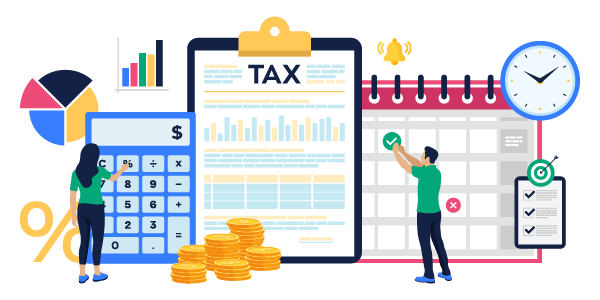Dividend Taxes
It is important to understand the role taxes will play in your dividend investments. The goal of dividend stocks is to produce income. But there is no question, that how that income is taxed can make a significant difference to your bottom line. Looking for tax advantages can certainly be beneficial to you as an investor.

What type of account are you using?
When it comes to taxes, the type of account you are using will make a big difference.
Tax-qualified accounts
If you are using a tax-qualified account, like an IRA, you will not pay tax on capital gains, dividends, or any other income. We often refer to these types of accounts as retirement accounts.
Taxable account
However, if you are using a taxable account, you will pay taxes each year on gains, dividends, and interest. You will benefit from looking for ways to manage and reduce the impact of taxes through qualified dividends.
Create a free account & receive The Best Dividend eBook!
Ordinary dividends
An ordinary dividend will be taxed as ordinary income at your marginal tax rate. This could be as high as 37%. But if an ordinary dividend meets certain requirements, it will become a qualified dividend. A qualified dividend “qualifies” for the lower long-term capital gains tax rate, which maxes out at 20% and is only 15% for most people.
How does an ordinary dividend become a qualified dividend?
To become a qualified dividend, three general requirements must be met.
First, the dividend must be paid by either a U.S. corporation or qualified foreign account. Secondly, the dividend cannot be paid by a non-qualifying entity, including but not limited to REITs, MLPs, and ESOPs.
Lastly, to become a qualified dividend, you must have owned the stock for more than 60 days during the 121-day period beginning 60 days before the ex-dividend date. For example, day 1 would be 60 days before the ex-dividend date. Then, the ex-Dividend Date would count as day 60. 60 days after the ex-dividend date counts as day 121. Learn more about dividend dates.
What about long-term investors?
The rules may sound confusing, but if you are a long-term buy and hold investor, your dividends should automatically meet the qualified dividend criteria.
Because qualified dividends are taxed at the lower capital gains rate, they are more tax-efficient and will allow you to keep significantly more of your income than a similar ordinary dividend.
This difference between ordinary dividend income and qualified dividend may be more important to high-income earners who fall into the highest tax brackets.
Get Started with TrackYourDividends. Create a free account, track your portfolio, and receive a special gift: The Best Dividend Investing eBook.

